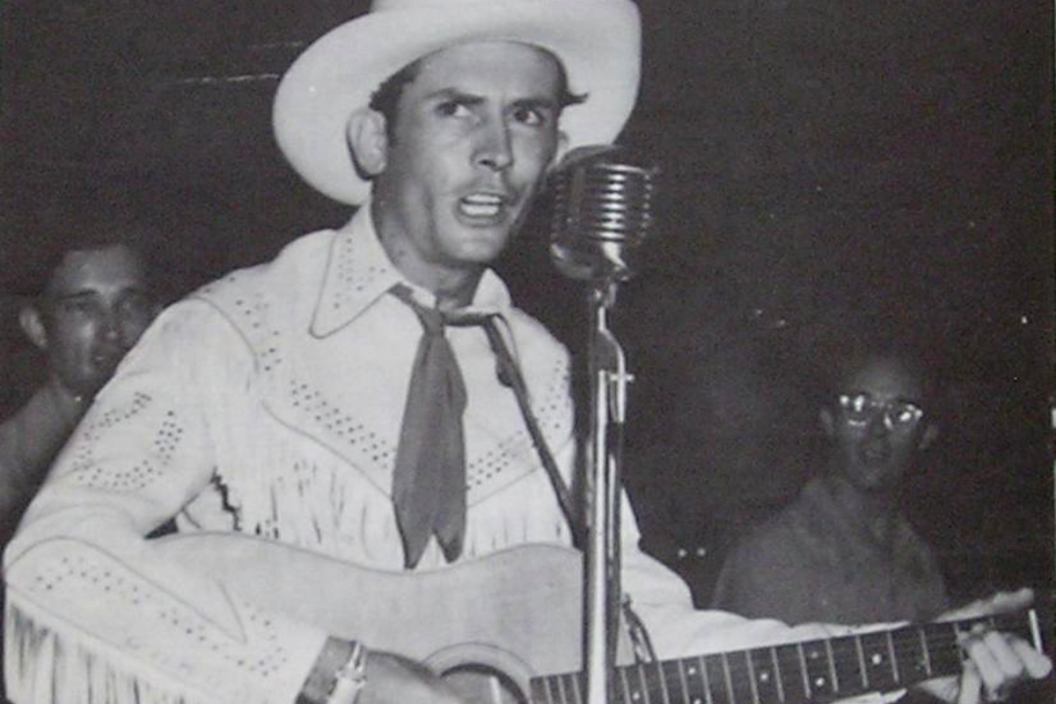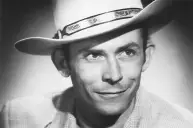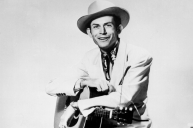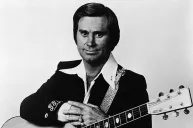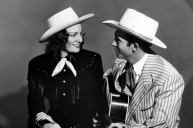Despite not being a huge hit during his lifetime, the song "Lost Highway" went on to help define Hank Williams' near-mythical career. Its title often pops up in posthumous references to Williams' legacy, including the stretch of Interstate 65 near Montgomery christened the Hank Williams Memorial Lost Highway.
Videos by Wide Open Country
The song's lasting appeal is simple to grasp. Over the years, this tale of life on the road and sins' wages began to represent the glamorized idea of country stars and other creative types as drifters and renegades.
A Lesser-Known Singer's Claim to Fame
Williams neither wrote nor first recorded "Lost Highway." Those honors went to lesser-known country singer-songwriter Leon Payne. Known for his stint playing at Jerry Irby's Houston nightclub, Payne's recording arrived in 1948 via the Nashville-based Bullet label. Per an interview with his wife Myrtie "Mrs. Leon" Payne cited in Dorothy Horstman's 1976 book Sing Your Heart Out, Country Boy, the singer's real-life struggles informed the lyrics.
"In the early days of Leon's career, he hitchhiked from one place to another, finding jobs wherever he could," she said. "Once he was in California hitchhiking to Alba, Texas, to visit his sick mother. He was unable to get a ride and finally got help from the Salvation Army. It was while he was waiting for help that he wrote this song."
Shaping the Hank Williams Myth
Williams made several lesser-known contemporaries' songs his own while making them accessible to a much broader audience. Take for example how his reimagining of Grady and Hazel Cole's country-gospel classic "Tramp on the Street" inspired covers by everyone from Ramblin' Jack Elliott to the Staple Singers. In this case, Williams made Payne's somewhat upbeat take on hillbilly blues suit that high and lonesome sound chased by country, folk and rock artists ever since.
Beyond giving the song immeasurable exposure for decades to come, Williams accidentally sealed his proto-outlaw legacy with a slight rewording of Payne's lyrics. Payne's second verse said, "a deck of cards and a jug of gin and a woman's lies built this road of sin." Williams turned the lens on his own life, singing "just a deck of cards and a jug of wine and a woman's lies make a life like mine."
Read More: How the Ghost of Hank Williams Inspired David Allan Coe's 'The Ride'
That slight lyrical change feeds the perception that Williams was a hard living, heavy drinking and stubborn-minded musical genius.
"Even though he didn't write it and it wasn't a huge hit, it's so characteristic of his persona and our perceptions of his life that it's become really associated with him, and he does a great job with it too," says Dr. Steve Goodson, co-editor of The Hank Williams Reader.
An Often-Covered Classic
Williams' interpretation of Payne's career-defining classic inspired cover versions for years to come. Contemporaries of Williams, namely Johnny Horton and Ernest Tubb, kept the song relevant around Nashville. As bluegrass became a more visible outlet for singers' statements of faith, the Osborne Brothers cut a gospel-inspired version with Red Allen. In the 1970s, when Texas singer-songwriters offered a creative alternative to pop-friendly country, Townes Van Zandt recorded one of the saddest versions to date. Later, when Willie Nelson served the nostalgic needs of traditional country fans, the song became the impetus for duets with Ray Price and Kurt Nilsen.
Outside of country music, the song's staying power made it a reference point for the Bob Dylan and Joan Baez-led folk revival, Jerry Lee Lewis' blending of early rock and classic country, Leon Russell's own hillbilly persona named Hank Wilson, the late Jeff Buckley's introduction of deeper roots to indie rock and Tom Petty's nods to rock's varied influences.
As long as fans, scholars, journalists and musicians remain curious about the truths and legends attached to Williams' life and career, "Lost Highway" will get more attention and respect than its writer or best-known singer received for it in their lifetimes.
This post was originally published on March 6, 2018.
